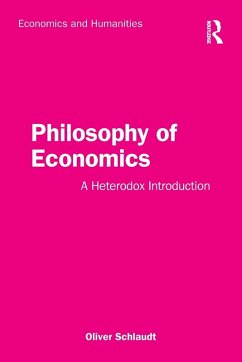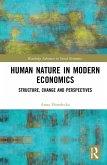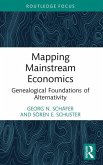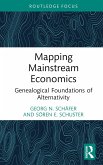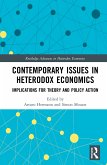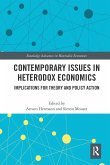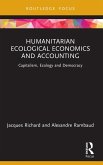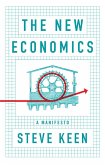Philosophy of Economics: A Heterodox Introduction provides an introduction to the philosophy of economics through the prism of heterodoxy.
Heterodox economics covers a range of approaches and schools of thought but what they have as a common denominator is the conviction that economic phenomena cannot be understood, and thus must not be studied, in isolation from their relevant context. Conversely, the current form of neoclassical economics emerged from the conviction that there is something like economic rationality sui generis which can be treated independently from all other aspects of our world, social or natural. Heterodox approaches challenge this conviction, from a variety of angles: the economic actor is not isolated, but lives in society which shapes him; market goods are only one kind of goods among others, constituting a larger set with ambiguous and shifting inner frontiers; production of goods takes place within nature, is subjected to physical laws and induces in most cases ecologically problematic fluxes of matter (e.g. waste); finally, the whole economic process in general is not in equilibrium, but shows secular trends through which it is connected to the historical world. This book demonstrates the vitality of these heterodox challenges from a philosophical point of view because not only do they formulate new hypotheses within economics, but they challenge economic theory on a much more fundamental level: how is the economy situated in the world, and which are the right methods for its investigation?
This book is an ideal introduction for anyone seeking alternative or critical perspectives on the philosophy of economics and economic theory.
Heterodox economics covers a range of approaches and schools of thought but what they have as a common denominator is the conviction that economic phenomena cannot be understood, and thus must not be studied, in isolation from their relevant context. Conversely, the current form of neoclassical economics emerged from the conviction that there is something like economic rationality sui generis which can be treated independently from all other aspects of our world, social or natural. Heterodox approaches challenge this conviction, from a variety of angles: the economic actor is not isolated, but lives in society which shapes him; market goods are only one kind of goods among others, constituting a larger set with ambiguous and shifting inner frontiers; production of goods takes place within nature, is subjected to physical laws and induces in most cases ecologically problematic fluxes of matter (e.g. waste); finally, the whole economic process in general is not in equilibrium, but shows secular trends through which it is connected to the historical world. This book demonstrates the vitality of these heterodox challenges from a philosophical point of view because not only do they formulate new hypotheses within economics, but they challenge economic theory on a much more fundamental level: how is the economy situated in the world, and which are the right methods for its investigation?
This book is an ideal introduction for anyone seeking alternative or critical perspectives on the philosophy of economics and economic theory.
Voices on the German edition:
"Oliver Schlaudt has written a very readable introduction to the philosophy of economics. Anyone who wants to deal with the subject should pick up this book. [...] With his book, Schlaudt makes an important contribution [to] the formation of a genuine philosophy of economics."
- Christian Neuhäuser in Deutsche Zeitschrift für Philosophie
"Brilliant plea for a political and ecological economy [...]. Sharp, subtle, truly philosophical analysis [...]. Apocalypses can hardly be explained more soberly, and a greater compliment can hardly be paid to a philosopher."
- Reinhard Mehring in Philosophischer Literaturanzeiger
"The more fundamental the problem, the more helpful are specialists on the big issues. [...] Schlaudt explains conclusively why economists find it difficult to analyze conflicts between economic process and ecological sustainability."
- Norbert Häring in Handelsblatt
"Oliver Schlaudt has written a very readable introduction to the philosophy of economics. Anyone who wants to deal with the subject should pick up this book. [...] With his book, Schlaudt makes an important contribution [to] the formation of a genuine philosophy of economics."
- Christian Neuhäuser in Deutsche Zeitschrift für Philosophie
"Brilliant plea for a political and ecological economy [...]. Sharp, subtle, truly philosophical analysis [...]. Apocalypses can hardly be explained more soberly, and a greater compliment can hardly be paid to a philosopher."
- Reinhard Mehring in Philosophischer Literaturanzeiger
"The more fundamental the problem, the more helpful are specialists on the big issues. [...] Schlaudt explains conclusively why economists find it difficult to analyze conflicts between economic process and ecological sustainability."
- Norbert Häring in Handelsblatt

